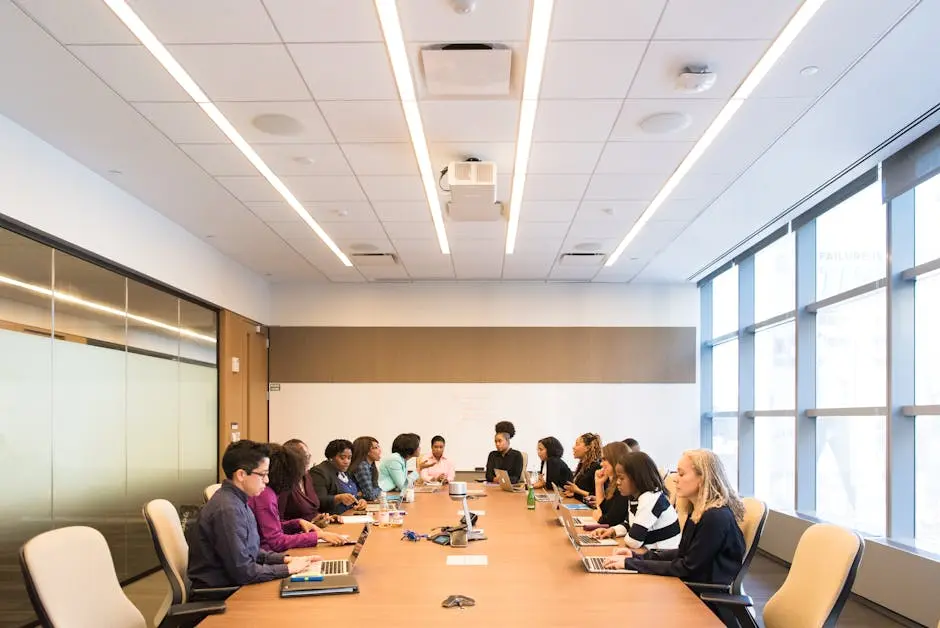In the fast-paced world of business, conflicts are inevitable. Whether it’s a dispute between partners or a disagreement among team members, mediation skills can play a vital role in resolving issues smoothly and effectively. Business mediation training equips individuals with the essential skills needed to navigate these situations with confidence and poise. Let’s explore the key skills that are crucial for effective business mediation.
1. Active Listening Techniques
Active listening is the cornerstone of mediation, allowing mediators to fully understand each party’s perspective without bias. Emphasizing empathy and reflection, active listening fosters an environment of trust and openness. It’s important to not just hear but to truly listen, which involves acknowledging emotions and paraphrasing to confirm understanding. This process creates a space where participants feel valued and understood, ultimately encouraging more open and effective dialogue.
A practical technique to improve active listening is the use of ‘I’ statements. Instead of saying ‘You are not being clear,’ a mediator might say, ‘I am trying to understand your point better; could you explain it once more?’ This approach minimizes defensiveness and keeps the focus on mutual understanding rather than conflict escalation.
2. Impactful Communication Strategies
Effective communication is essential in mediation, enabling mediators to convey messages clearly and facilitate productive discussions. This involves both verbal and non-verbal communication skills to ensure that all parties feel heard and respected. Non-verbal cues such as body language and eye contact can reinforce verbal messages and indicate attentiveness and sincerity.
Additionally, using open-ended questions can invite more detailed responses. For example, instead of asking, ‘Do you agree with this solution?’ one might say, ‘What are your thoughts on this proposed solution?’ This type of questioning encourages deeper engagement from participants, allowing more nuanced insights to surface.
3. The Art of Neutrality
Maintaining neutrality is vital in mediation to ensure a fair process. Mediators must remain impartial, avoiding personal biases and focusing on facilitating a balanced dialogue between parties. It’s about creating a level playing field where all participants feel that their voices are equally important and valued.
To sustain neutrality, mediators might consider employing techniques such as reframing. By presenting what’s being communicated in a different way, without altering its meaning, mediators can help parties see perspectives in a new light, assisting in breaking down barriers and reducing defensive positions.
4. Problem-Solving Mindset
A strong problem-solving mindset allows mediators to guide parties toward mutually beneficial solutions. By identifying underlying issues and exploring creative resolutions, mediators can help avert conflicts from escalating. This involves techniques like brainstorming and prioritizing potential solutions based on shared interests rather than positional demands.
5. Effective Questioning Techniques
Utilizing effective questioning techniques, mediators can clarify issues and uncover interests that may not be immediately apparent. Open-ended questions are key to gaining insights. Questions such as ‘Can you help me understand what is most important to you in this situation?’ open up space for comprehensive exploration of interests, ensuring that nothing critical is overlooked.
6. Cultural Intelligence
In today’s diverse work environments, cultural intelligence is essential. It helps mediators navigate cross-cultural differences and facilitates a more inclusive and respectful mediation process. Mediators need to be sensitive to various cultural norms and values to prevent misunderstandings and foster mutual respect among all parties involved.
7. Emotional Intelligence Development
Emotional intelligence enables mediators to manage emotions—both their own and others’—effectively. This is crucial for maintaining calm during tense situations and helping parties find common ground. Understanding emotional dynamics allows mediators to address emotional undercurrents before they derail the mediation process.
8. Building Trust and Rapport
Trust is the foundation of any successful mediation. Building rapport with all parties encourages openness and honesty, making the resolution process more effective and harmonious. Mediators can achieve this by expressing genuine interest and maintaining confidentiality, which assures participants that their concerns are being taken seriously.
9. Creating a Safe and Respectful Environment
A mediator must ensure that all parties feel safe and respected during the mediation process. This involves setting ground rules and managing dynamics to maintain a constructive atmosphere. Clear guidelines about respectful communication and time allocations can prevent potential breakdowns and ensure productive sessions.
10. Facilitating Cooperation and Collaboration
Collaboration is at the heart of successful mediation. Encouraging cooperative behavior and collaborative problem-solving can lead to effective resolutions that satisfy all involved parties. Techniques such as joint brainstorming sessions can be instrumental in fostering teamwork, helping parties move from adversarial standpoints to unified efforts.
By uniting participants around common goals, mediators can transform conflicts into opportunities for growth. Creating a sense of shared purpose aligns interests and drives commitment, making the resolution process not only more efficient but also transformative.

